Electric heating systems are essential in maintaining the desired temperature inside your house. They come in various types and sizes, from gas and infrared heaters to solar heaters. While each option has pros and cons, choosing the right one depends on several factors. Therefore, stay with us as we explore the best electric home heating systems.
Advantages of Electric Heating Systems
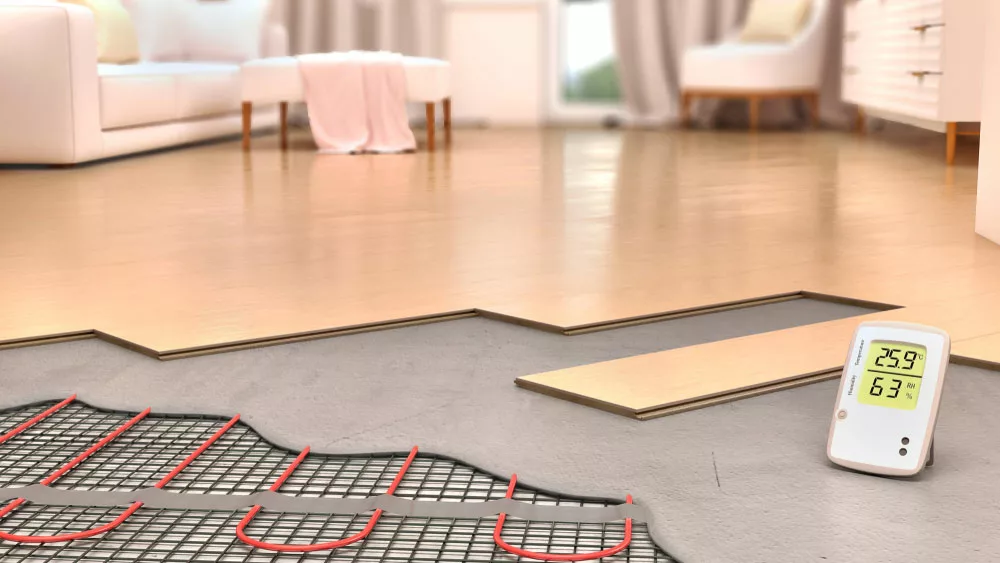
System of underfloor heating in interior design.
Let’s first look at some of the benefits of common electric systems.
They are cost-effective.
Many electric heating systems are less expensive than conventional alternatives such as the HVAC. It is because electric heating systems don’t require ongoing expenses of equipment upkeep and replacement parts.
They require Low to no Maintenance.
With electric heating systems, you don’t have to wait for supplies or repair professionals. Also, the upkeep cost is relatively low since all your heat comes from electricity.
You may also experience fan failures sometimes, but frequent repairs, as with HVACs, are a rarity.
Most are Environment Friendly.
Also, most of these systems are safe for the surroundings and the users. Primarily, this is because they don’t apply conventional boilers, so there’s no chance of carbon monoxide poisoning.
Remember, although gas is the safest fossil fuel, it contributes significantly to greenhouse gas emissions.
Electric systems are Energy Efficient.
With electricity, all the power that goes into the system converts out in the output end, with no energy losses. But this is not the case with gas systems; they have a higher chance of leakage, heating element corrosion, and thermostat malfunction.
They offer Discreteness.
Modern electric heaters can blend in with your surroundings. In some cases, they resemble wall hangings. Besides, radiation-based designs are tranquil, making them invisible to sight and sound.
13 Best Electric Home Heating Systems (Benefits and Drawbacks)
Here is a list of the best electric systems with their advantages and disadvantages.
Electric Radiant Floor Heating
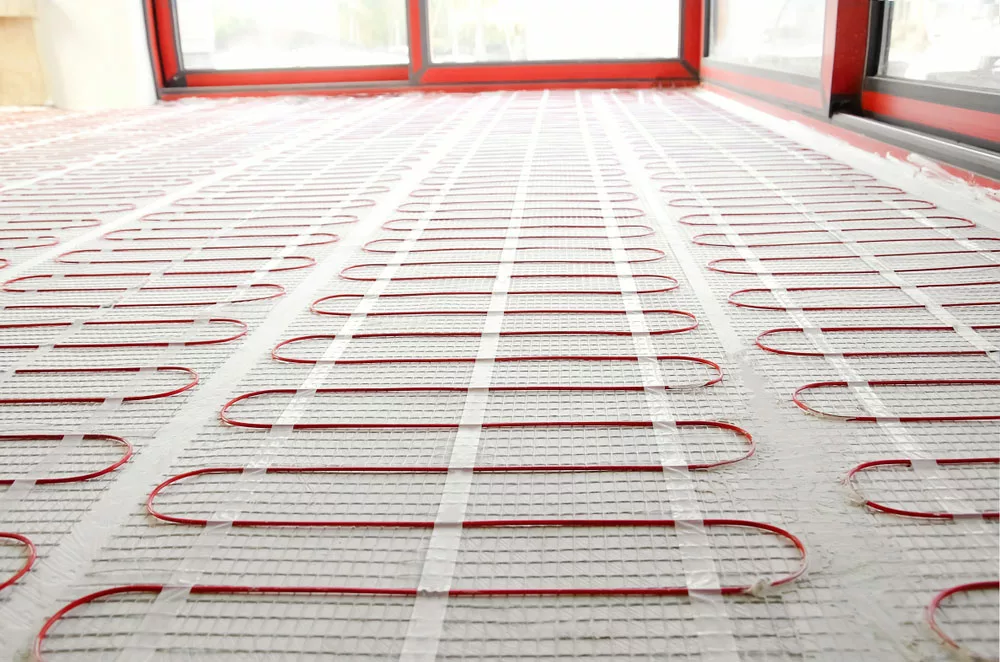
Electric underfloor heating red mats on a cement floor
Floor heaters can be electric mats, heated water tubes, or wires. Also, such systems function best in rooms with concrete floors. The heat absorbed by the concrete may keep a space warm for several hours without needing a heater.
Pros
- These heating systems distribute heat evenly throughout your home.
Cons
- It’s tough to reach the concealed pipe system in the event of maintenance issues, which may need pulling up flooring.
Radiator
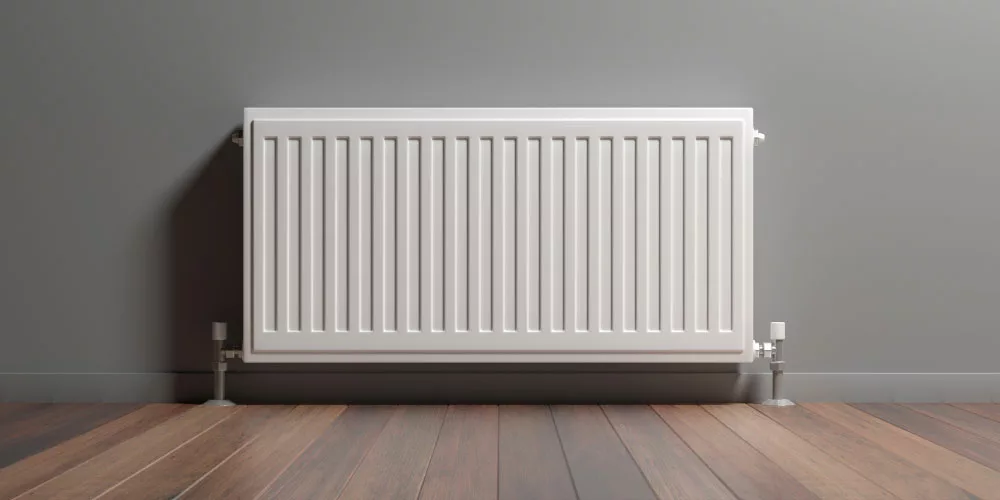
A home radiator.
People who want temporary extra heat should opt for this electric system.
A radiator works via the old-school heating principle (thermal convection heating). It heats the air within its vicinity, which ultimately spreads to the surrounding. Then, the device collects cold air from the surrounding back to the system for heating.
Pros
- Oil, which generates heat, cools slowly, serving as heat storage. Thus radiant heating systems keep the surroundings warm for an extended period.
Cons
- There will be cold and hot areas in the room because of the concentration of heat sources in specific areas.
Furnace
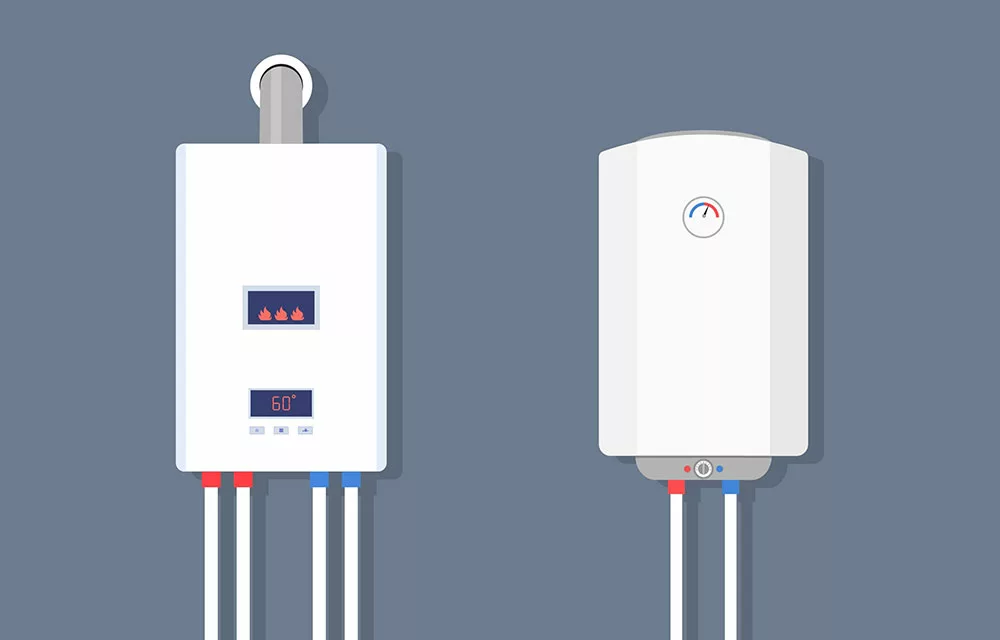
Gas boiler and electric water heater.
The main parts of this system include a furnace and a blower fan. The furnace is handy for heating the air while the blower fan circulates it around the various house parts via a duct system.
Pros
- The furnace system guarantees both heating and cooling within a single system.
Gravity Air Furnace
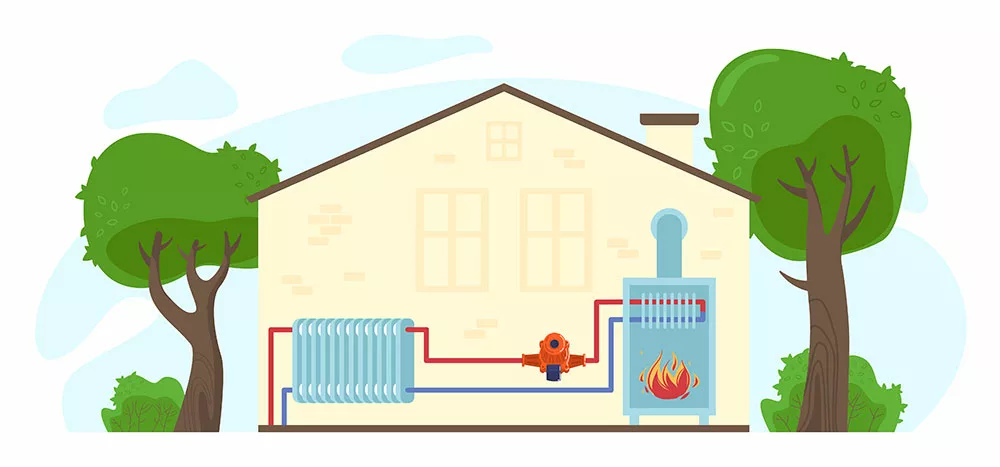
A gravity air furnace illustration.
This system uses ducts in the ground to distribute air. The general underlying principle of gravity air furnaces is that hot air effortlessly rises while cold air descends.
Pros
- It requires minimal servicing since the system has no moving components.
Cons
- It may not be as efficient as other heating systems. Primarily, this is because the rising and falling of air rely on its heat supply.
Infrared Panels
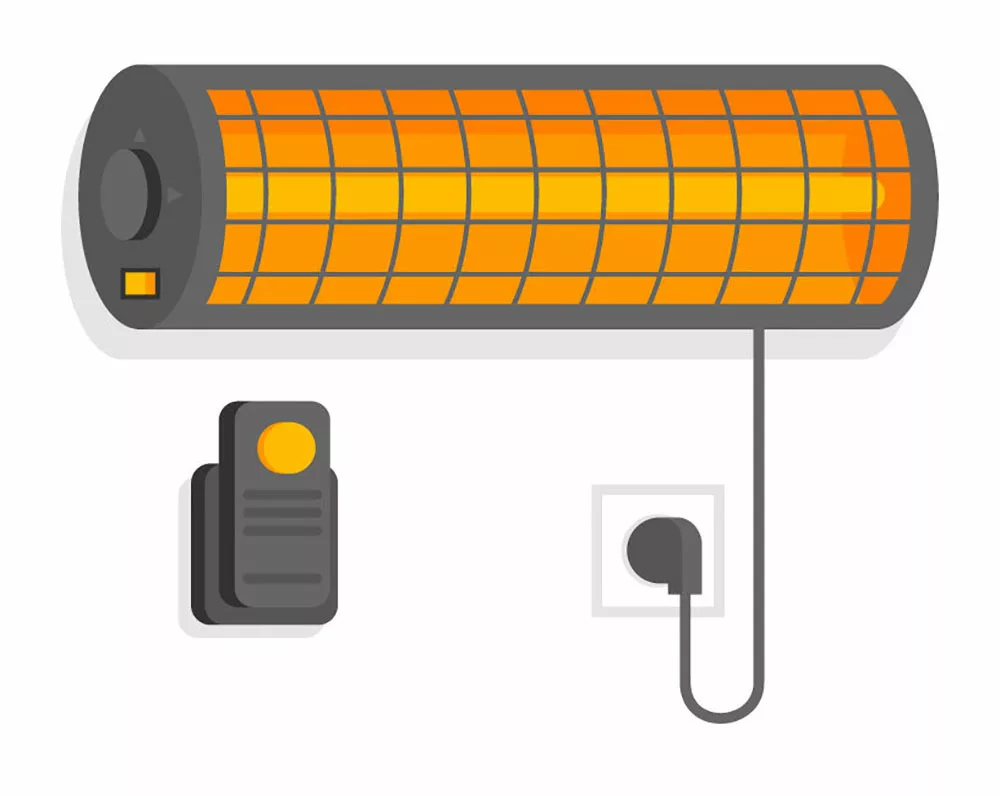
Infrared wall heater with remote control.
The system provides direct warming, unlike other heating systems that first heat the air around them to warm surroundings.
Pros
- They naturally outperform the majority of heating systems in terms of efficiency.
- You may also find portable heaters with good heating efficiency that you can move to wherever you want.
Cons
- Their main downside is the reliance on an additional controller to operate.
Portable Space Heater
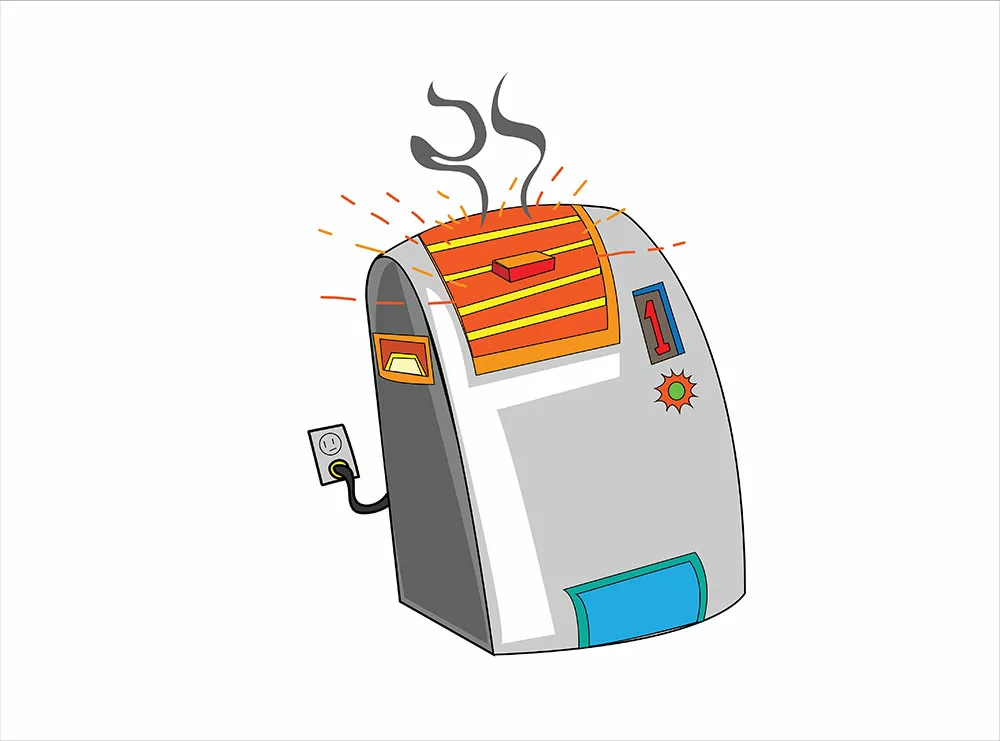
A Portable Space Heater.
They are a convenient choice for raising the temperature in garages, bathrooms, restrooms, and other similar areas. You have a dependable source of extra heat that you can regulate and carry around easily.
Pros
- You can easily move it around, and it’s also easy to adjust the heat levels to your preference.
Cons
- However, it would be best to closely supervise the space heater while in heating mode.
Heat Pumps
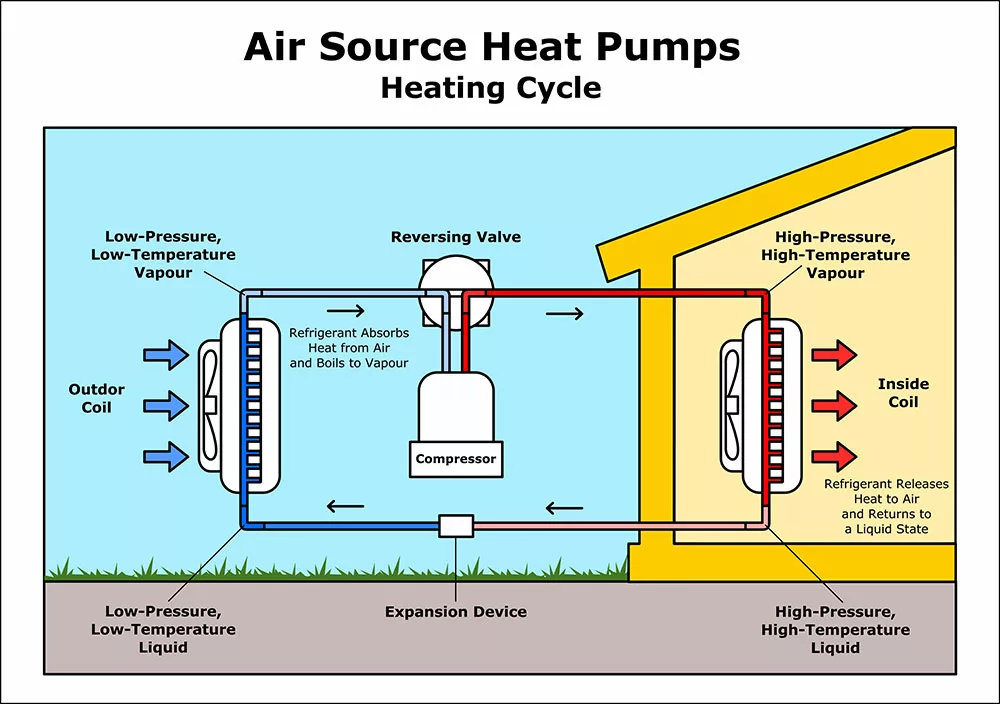
Air Source Heat Pumps.
They employ a mechanism akin to that of an air conditioner. This process operates by removing heat from the air and distributing it around the house using an interior air handler.
Pros
- They are effective for homes without cooling and heating ducts
Cons
- You might need to use extra heating during cold climates.
Baseboard Heating
You should place it on external walls and under windows to mitigate the effects of frigid walls. The devices give out heat which is essential in warming the surrounding air.
Pros
- Baseboard heating devices are relatively more affordable to install than other heating systems.
Cons
- It consumes valuable space since it requires the removal of furniture.
Hybrid Heating
With this type, the system integrates the strength of a gas furnace with the energy efficiency of a heat pump system. Often, the heat pump warms the house as it operates at total capacity on a full-time basis.
However, through extreme temperatures, the gas furnace does the conditioning.
Pros
- A hybrid heating system is highly efficient as it can work at extreme temperatures.
Cons
- It requires routine maintenance, unlike other electric heating systems.
Wall Heaters
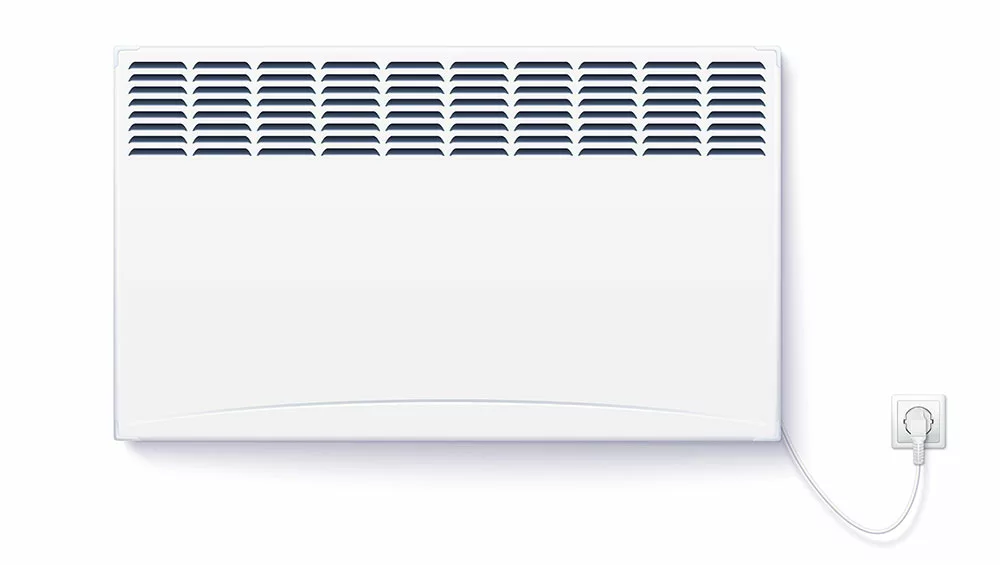
A wall heater.
As the name suggests, wall heaters are heating appliances you attach to a wall. They are suitable for heating single rooms, compact living areas, or tiny offices because they conserve essential floor space.
Pros
- It saves space as you place it on the wall.
- It is also highly efficient as it heats the surroundings quickly.
Cons
- Most wall heaters produce noise which can often be a nuisance.
Electric Towel Rails
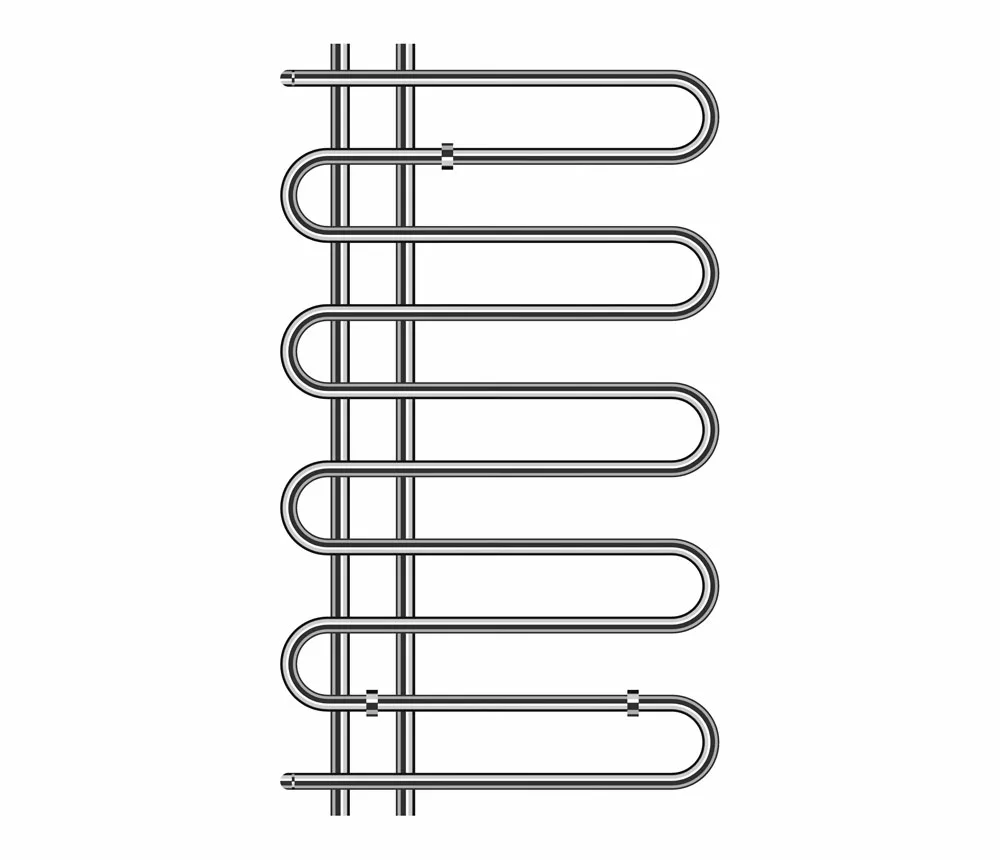
A heating rail.
Instead of using gas-powered hot water, you can link electric towel rails to your home’s main electrical supply and run-on electricity. Typically, the rail has an electric element that warms the liquid within when you activate it.
Pros
- The system offers IP protection, hence ideal for families with kids or vulnerable individuals.
Cons
- It features complex around-the-clock programming, which can be challenging to manage, especially if inexperienced.
Electric Resistance
These heating systems consume a lot of electricity. Thus they may not be suitable for primary use. Nevertheless, they make an excellent backup heating system for basements, homes, or offices.
Pros
- You can practically install it at any place due to its extreme versatility.
Cons
- In the long run, it may not be cost-effective especially given its high electricity use.
Electric Panel Heaters
They are portable devices that you can easily install at points where the heat from the central heating system does not reach. It further features a digital programmer that allows users to set their custom heating schedule.
Pros
- It is easy to control with a remote and Wi-Fi.
Cons
- It is not appropriate for continuous usage
Which Electric Heating System Is Best?
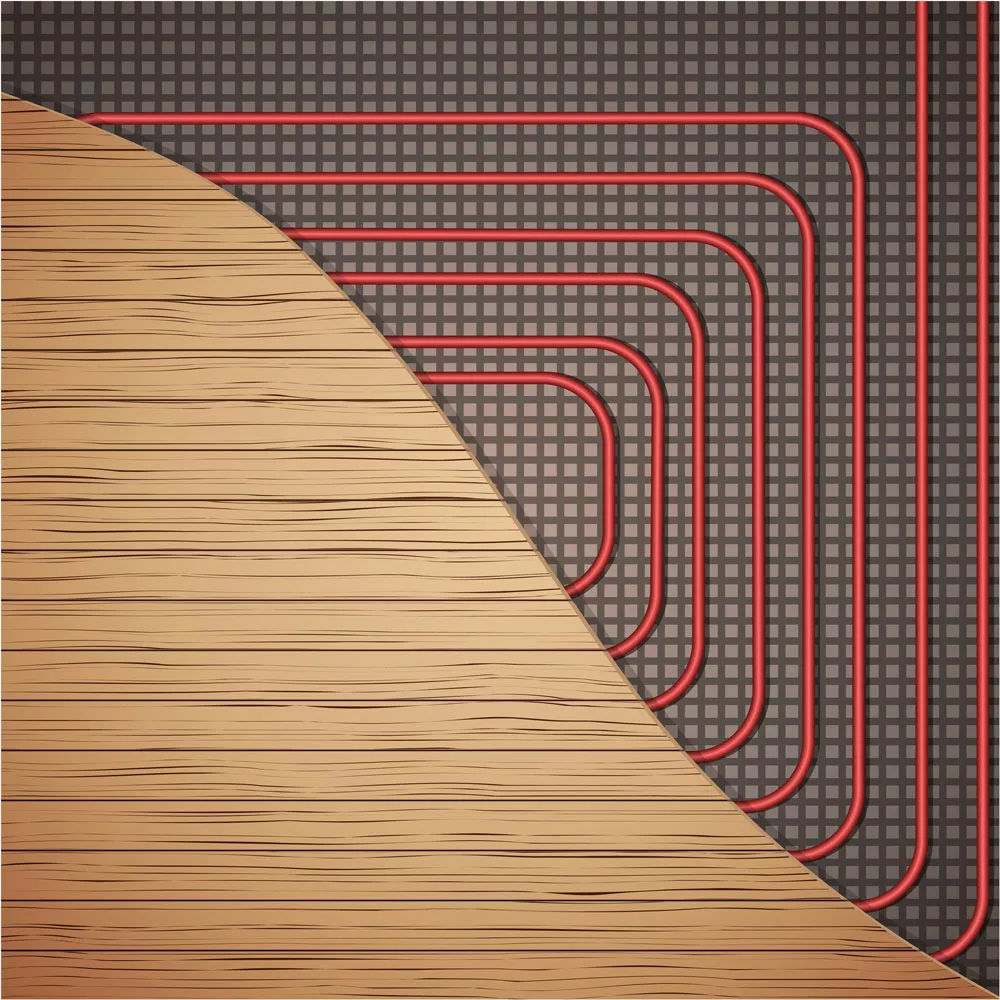
Electric floor heating.
Of the heating systems we’ve covered above, electric radiant heat is arguably the best option. Primarily, it provides even heat distribution in a room or throughout your household. Here are other reasons we rank electric radiant heat as the top choice.
No maintenance necessary
There are no further concerns after installation. Also, with no moving components, the system’s maintenance is minimal.
It doesn’t produce noise.
Electric radiant floor heating is quiet as it doesn’t have moving parts that can be quite a nuisance at night.
Simple installation
With a professional, you can easily set the system up in your place.
It is safe even for allergic people.
Radiant floor heating only transports heat, not air, unlike HVAC systems which continually circulate air. The latter systems are renowned for spreading dust and allergies in the house.
FAQs
Electric or Gas Heater Systems? – Which One Is Better?
In fact, electric heating systems are far better than gas heating systems. Here are the reasons:
- Gas is not sustainable or dependable as it is a non-renewable energy source.
- Also, gas heating systems are more expensive to maintain than electric heaters.
- Lastly, in most cases, the electricity grids are more easily accessible than gas. In addition, the installation of electric heating systems is cheaper than that of gas heating systems.
Summary
Electric heating systems save you from the pain of your house being too cold during winter. Hence, an efficient electric heating system is essential, especially during winter. Now with this article, you can easily find the electric heating system that best suits your needs.
